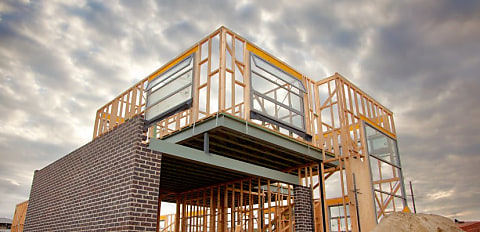According to the Australian Bureau of Statistics results, the trend figures for total dwellings approvals across the country over June were 15,780, marking no change from May and a 19.7 per cent drop year-on-year.
Seasonally adjusted, June’s total approvals (16,461) accounted for a 70-bp drop and a yearly fall of 17.2 per cent.
As observed over May, houses (9,796) were the main factor for this lack of improvement, with the ABS observing a 30-bp loss over the month and a 22.1 per cent fall compared to June 2021.
Dwellings that excluded houses (5,627), such as apartments and town houses, reported a 1 per cent uptick over the month.
However, compared to 12 months ago, this figure of approvals reflected a 16.8 per cent collapse.
This observation for falls between June 2021 and June 2022 was also observed in the seasonally adjusted data, with houses and dwellings excluding houses falling by 22 per cent and 10.1 per cent respectively.
By state, total losses were reported across NSW (80 bps), South Australia (1 per cent), Victoria (1.7 per cent), the ACT (2.7 per cent) and the Northern Territory (5.9 per cent).
The largest growth was observed in Western Australia, which increased by 5.5 per cent to reach 1,611 total approvals.
This was followed by Tasmania, which grew by 2.8 per cent to reach 259 total approvals, and Queensland, which lifted by 2.6 per cent to hit 3,191 dwelling approvals.
Among the total number of houses approved – which excluded Tasmania and both territories – NSW was the only state to report a loss, with approvals dipping by 1.2 per cent to reach 2,329.
Victoria, which had the highest number of house approvals for the month at 3,093, grew by 20 bps.
Moving forward, some economists are predicting that approvals will drop, with interest rates tipped as a contributing factor.
Earlier this week (2 August), the Reserve Bank boosted the cash rate to 1.85 per cent, marking the fourth consecutive lift.
According to a statement released by Commonwealth Bank economists Belinda Allen and Stephen Wu, the bank is expecting “some weakness” in dwelling approvals in the future.
“Rising interest rates and rising costs of building a new house are acting as headwinds,” both economists noted, adding that there is also a “strong link between approvals and mortgage rates”.
“However, offsetting factors include very low vacancy rates, rising rents and rising net overseas migration. These later factors will provide medium term support for the sector.”
AMP Bank senior economist Diana Mousina shared a similar outlook, noting that “further downside in residential approvals is likely from here, especially for houses”.
According to Ms Mousina, demand was brought over the 2021 financial year with declining interest rates and schemes such as HomeBuilder. However, with interest rates rising, variable rates will inevitably grow.
Ms Mousina added that the “fixed mortgage is now around three times higher than its 2020 low”.
“Unit approvals are unlikely to fall much further and should trend sideways because unit building is already much lower compared to recent years (especially versus the 2017 peaks) and as net migration rises again which normally sees higher demand for apartments,” Ms Mousina added.
“Overall, we expect residential construction to make a small negative contribution to GDP growth over the remainder of 2022.”
[Related: House development decline drives approval downfall]
